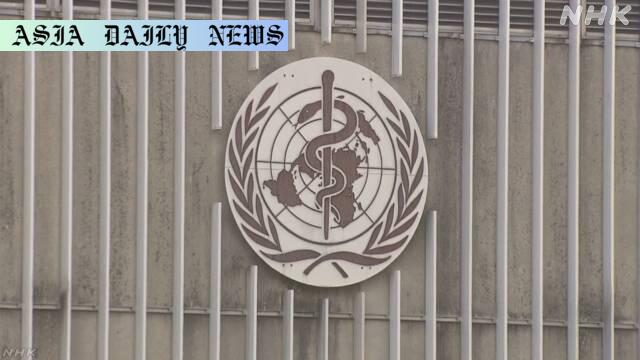COVID-19: Marking five years since WHO’s first health emergency declaration, responses, and future preparedness.

Five Years Since WHO’s COVID-19 Declaration
On January 30, 2020, the World Health Organization (WHO) declared COVID-19 a public health emergency of international concern, marking a pivotal moment in the global understanding of the pandemic. The world witnessed a health crisis unlike any seen in a century, resulting in widespread loss of life, economic disruption, and profound shifts in how nations respond to infectious disease outbreaks. The WHO’s decision played a critical role in igniting countrywide and international responses to curb the spread of the virus.
The Toll of the Pandemic
As of now, COVID-19 has resulted in over 777 million confirmed cases and more than 7 million deaths globally. These numbers only scratch the surface of the pandemic’s full impact, as many cases went unreported, and indirect mortality factors, like overwhelmed healthcare systems, are difficult to quantify. While progress has been made in reducing the virus’s immediate threat—with vaccines widely available—these figures stand as somber reminders of the pandemic’s reach.
WHO’s Response and Financial Challenges
Despite its extensive contributions to global health, the WHO faced challenges during the pandemic, particularly the withdrawal of the United States from the organization under the Trump administration. As the largest financial donor to the WHO, the US’s exit left uncertainties regarding funding for crucial health initiatives. WHO Director-General Tedros Adhanom Ghebreyesus implemented significant cost-cutting measures to maintain the organization’s operations during this period, including prioritizing essential activities and hosting virtual meetings to save costs.
Preparing for Future Pandemics
The pandemic exposed severe vulnerabilities in the global response framework for infectious diseases, particularly in low- and middle-income nations. In response, the WHO is spearheading discussions on a global pandemic treaty aimed at strengthening disease preparedness and response capabilities. The treaty will focus on equitable vaccine distribution, accessible healthcare, and support for underdeveloped nations. However, negotiations have faced resistance from certain nations, including the United States, even as the WHO pushes for consensus among its member states.
Post-Emergency Responses
With the lifting of the health emergency declaration in May 2023, countries have transitioned to treating COVID-19 as part of their routine healthcare systems. This transition does not mean the virus is eradicated, but rather that nations are equipped to manage it without requiring emergency protocols. Monitoring for new variants remains a critical component of continued vigilance. Governments worldwide are maintaining systems to rapidly respond to mutations, ensuring that outbreaks are minimized before evolving into crises.
Lessons Learned
The lessons from COVID-19 extend far beyond the immediate health impacts. It highlighted disparities in healthcare access, the importance of coordinated global responses, and the crucial need for sustained investment in public health infrastructure. The role of organizations like the WHO in driving preparedness efforts emphasizes the need for stable funding and international collaboration, especially when addressing disproportionately affected regions or communities.
Commentary
The Pandemic’s Unequal Impact
The COVID-19 pandemic revealed significant inequities that exist on both a local and global scale. Developing countries faced immense struggles when it came to access to vaccines, personal protective equipment, and general healthcare resources. Such inequalities raise the pressing question—it is the responsibility of wealthier nations to step up during global health crises?
Funding and Support for WHO
The withdrawal of US funding under Trump’s presidency was a political move that exposed how vital the WHO’s role is in global health security. Without adequate resources, organizations cannot effectively coordinate efforts across borders, potentially jeopardizing millions of lives. The US administration’s decision to withdraw was criticized for prioritizing domestic politics over collective welfare. Encouragingly, discussions are underway about rebuilding such strained relationships.
Looking Ahead to Pandemic Preparedness
As the world heals from the virus’s peak years, a critical think-through must be devoted to long-term prevention strategies. Governments cannot afford to fall into complacency. Dedicated investments in research, preventive healthcare, education, and global trust-building are vital to containing future outbreaks. We must ensure the lessons learned in these past five years are not ignored as international focus wanes on COVID-19 management.


